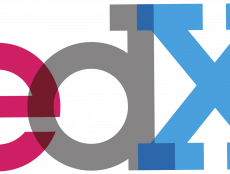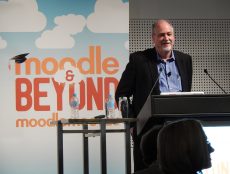
Articles
Industry News
2019 Saw Some Important Coding Bootcamp Acquisitions
By Henry Kronk
December 09, 2019
After a decline in overall coding bootcamp enrollment in 2018, 2019 witnessed a rebound to record levels. CourseReport estimated that the sector grossed a collective $309 million this year. Growth was witnessed especially among online and corporate trainers, according to their annual report. 2019, however, witnessed another important trend: edtech companies have begun to acquire some of the largest coding bootcamps.
Zovio/Bridgepoint Education Acquires Fullstack Academy, One of the First Coding Bootcamps
On March 12, Zovio acquired Fullstack Academy for $17.5 million in cash and 2.5 million common shares. Formerly Bridgepoint Education, Zovio had spent the past year consolidating and divesting its former for-profit college holdings of Ashford University and University of the Rockies. The two institutions combined and transitioned into a private non-profit. Bridgepoint, meanwhile, pivoted into an Online Program Manager (OPM) and rebranded as Zovio.
Fullstack Academy was one of the first coding bootcamps. It opened in New York in 2012 and continues to operate today with a series of full-time and part-time programs. Interestingly, the bootcamp offers exclusively in-person instruction on their New York and Chicago campuses.
The acquisition indicates that Zovio was not ready to leave the brick-and-mortar for-profit education sector behind. As Zovio CEO Andrew Clark stated at the time, “Fullstack Academy provides a platform from which we can expand into other high-demand employment verticals in need of qualified professionals. Together, Fullstack Academy and Bridgepoint are an excellent fit with a common vision of the future.”
2U Acquires Trilogy
The Zovio acquisition was eclipsed less than a month later when another OPM, 2U, acquired Trilogy Education for the total sum of $750 million. That amount was made up by $350 million in 2U shares, $150 million in cash, and $250 million loaned to 2U by Owl Rock Capital.
Trilogy Education, launched in 2015, had made a name for themselves by partnering with universities to offer in-person certificate training programs, many of which involved market-aligned programming skills.
2U, meanwhile, had long operated primarily in the field of online degrees with a SaaS model.
Speaking with Mad Money’s Jim Cramer, 2U CEO Chip Paucek explained that a good deal of their work was limited by their inability to have a brick-and-mortar presence on campus.
“We have a variety of programs where we do local clinical placement,” Paucek said. “So for an example of one, we offer a Master of Science in Midwifery with Georgetown (University). Well, you wouldn’t go to the midwife who delivered the virtual baby. We power a local clinical experience all over the country to allow people to go in to deliver babies in that program.”
At the time, it appeared that 2U had overpaid to close the deal. Trilogy had raised a Series B round of $50 million in 2018 that valued the company at $545 million. With hindsight, however, 2U very well might have had the last laugh. After a Q2 earnings call in which the company significantly altered their guidance, 2U stock lost over half its value. The situation was less-than-ideal for former Trilogy owners who at one time held $350 million in 2U stock.
Chegg Pays $80 Million in Cash for Thinkful
The final significant coding bootcamp acquisition of 2019 was announced in September. The coding bootcamp Thinkful accepted $80 million in cash from Chegg.
Thinkful was another coding bootcamp of the class of 2012. However, the company operates primarily online, while also prioritizing one-on-one mentoring.
Chegg’s decision to acquire the company marked yet another chapter in their colorful history. The company began as a textbook rental service in the aughts, but experienced significant turbulence in the 2010s. The company reported a net loss of $65 million in 2014.
But with CEO Dan Rosensweig’s hand at the helm, the company significantly invested in a variety of digital learning and tutoring services. In their Q3 earnings call this year, they increased their annual guidance to a net profit in the range of $407-$409 million.
Featured Image: Nate Grant, Unsplash.









No Comments